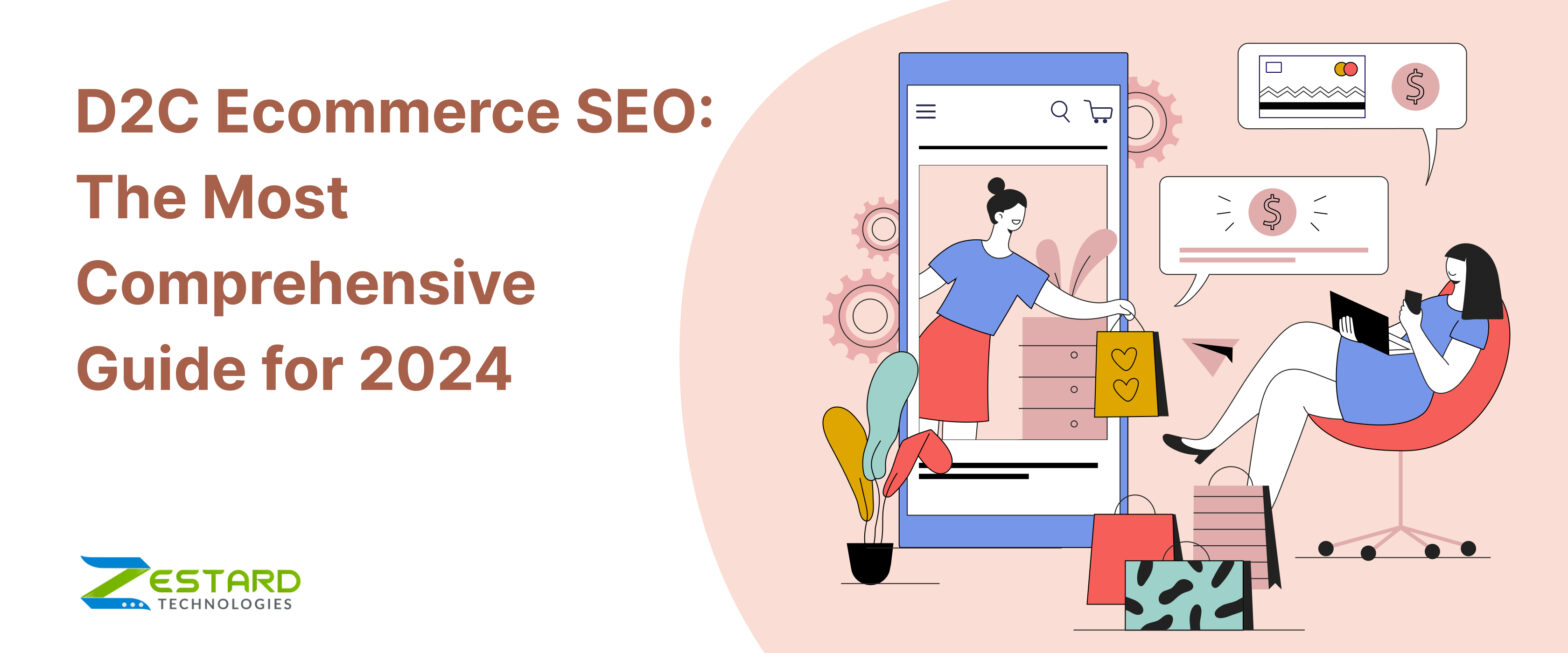
We analyzed 400 digital PR articles to answer the following questions:
- What should you expect from a digital PR article in terms of backlinks, organic traffic, and social media coverage?
- Do successful PR articles have any common characteristics?
So, without further ado, let’s look at the results.
A Summary of Our Key Findings
- 32% of the digital PR articles analyzed received 50 or more unique backlinks.
- Over 79% of the links earned were do-follow links.
- On average, a digital PR article brings in 70 organic visitors per month.
- A digital PR article has an average word count of about 1398.
- A PR article receives 754 social media interactions on average, with Facebook accounting for most.
- Over 67% of the digital PR articles earned links from low to medium-authority sites, i.e., sites with Ahrefs DR <60.
In this article, we’ll cover:
- What is Digital PR?
- How Many Unique Backlinks Can you Earn From a Digital PR Article?
- What was the No Follow and Do Follow Backlinks Ratio?
- How Much Organic Traffic Can You Expect?
- What is the Average Word Count of a Digital PR Article?
- Social Media Engagement
- What was the Quality/Authority of the Backlinks?
- Methodology
What is Digital PR?
Digital PR is a field of public relations that focuses on promoting companies and organizations through the use of digital channels. It’s a multi-faceted discipline that encompasses everything from influencer outreach to content marketing, SEO, and social media.
There are many benefits to using digital PR, including the ability to:
- Reach large audiences quickly and easily
- Build trust and credibility
- Increase brand awareness
- Promote products and services
- Earn mentions and links from authority websites
At its core, digital PR is all about using creative strategies to get your brand in front of your target audience.
Unlike traditional PR, which can be quite costly and time-consuming, digital PR is relatively affordable and easy to measure. Leverage these benefits for your brand with our expert Digital PR services.
Read here “12 Essential Questions to Ask SEO Agency Before You Hire Them“.
Without any further delay, let’s jump on to our first statistic:
How Many Unique Backlinks Can you Earn From a Digital PR Article?
Out of the 400 articles we analyzed, 32% of the Digital PR Articles received 50+ Unique Backlinks.
Further, we learned that
- 10% of the articles had zero backlinks.
- 42% of the articles had unique backlinks between 1 to 25.
- The remaining 48% of the articles were seen to have around 25+ unique backlinks.
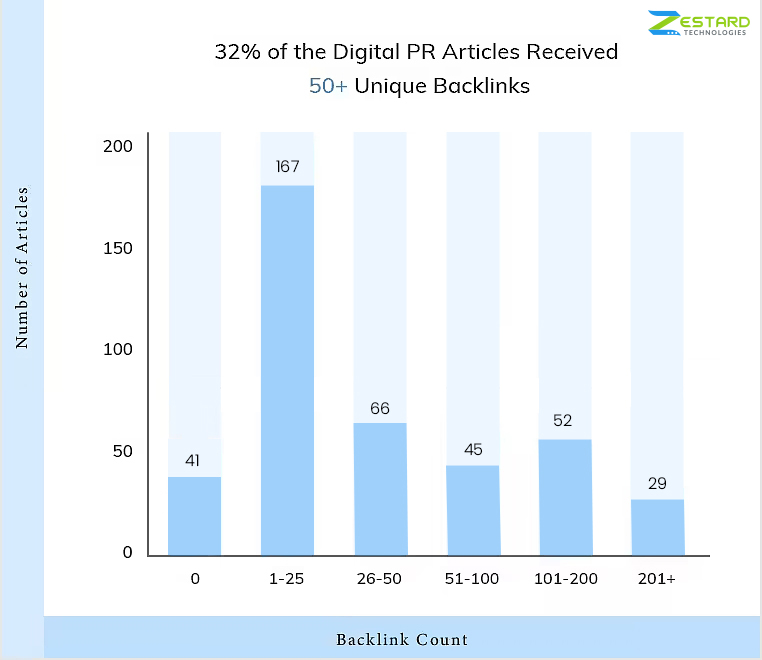
Backlinks play a vital role in determining the success of a digital PR campaign. The main motive behind this study was to estimate the average number of backlinks a digital PR article tends to attract organically.
What was the No-Follow and Do-Follow Backlinks Ratio?
To find out if Digital PR helps in getting the dofollow backlinks, we studied their nofollow-to-dofollow ratio.
We learned that 79% of the links earned through a digital PR article are do-follow. This means out of all the backlinks you receive, only 21% of the links would be no-follow.
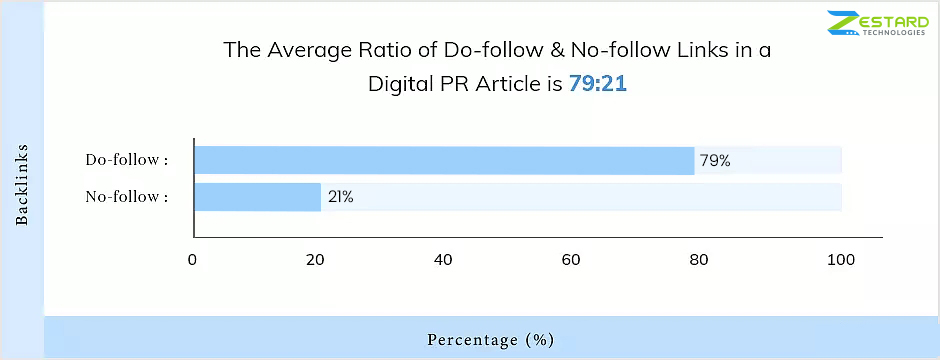
How Much Organic Traffic Can You Expect?
We found that, on average, a Digital PR article can drive around 70 visitors per month.
This is a shockingly low number, considering the effort that goes into creating a PR article.
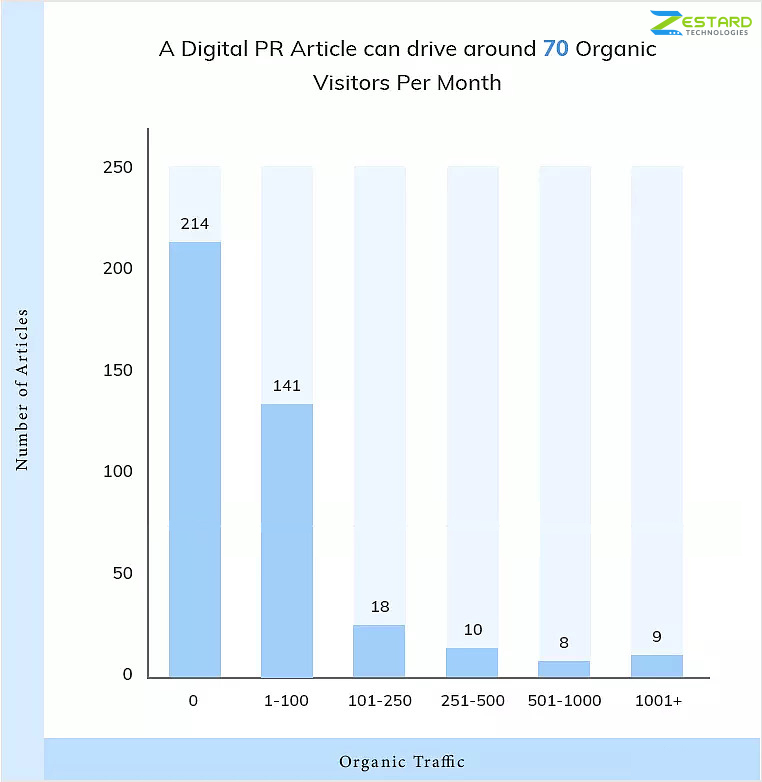
Here’s a further breakdown:
- 53% of the digital PR articles received zero organic traffic
- 43% of the digital PR articles received organic traffic between 1 to 500 per month
- 4% of the digital PR articles received 500+ organic traffic per month
One of the reasons PR articles do not bring organic traffic despite having authority backlinks is the choice of targeted topics/keywords. Most of the topics are trending/seasonal, and they do not have a good search volume.

Want to boost your website’s traffic and visibility?
Give Zestard a try to improve your brand’s online presence and fulfil all your digital marketing needs.
What is the Average Word Count of a Digital PR Article?
1398!
Someone who is new to digital PR might assume that they are supposed to be lengthy and a lot more informative than normal articles. But that’s not the truth.
In this study, while examining the total word count of all articles, we found the average word count to be around 1398 words.
Note: When calculating the average word count, we only considered 365 URLs. The other 35 URLs had no content (i.e., infographics, interactive content, forms, etc.) and were therefore excluded.
Looking at the word count stretch for different articles, we learned that 42% had a word count between 1-1000.
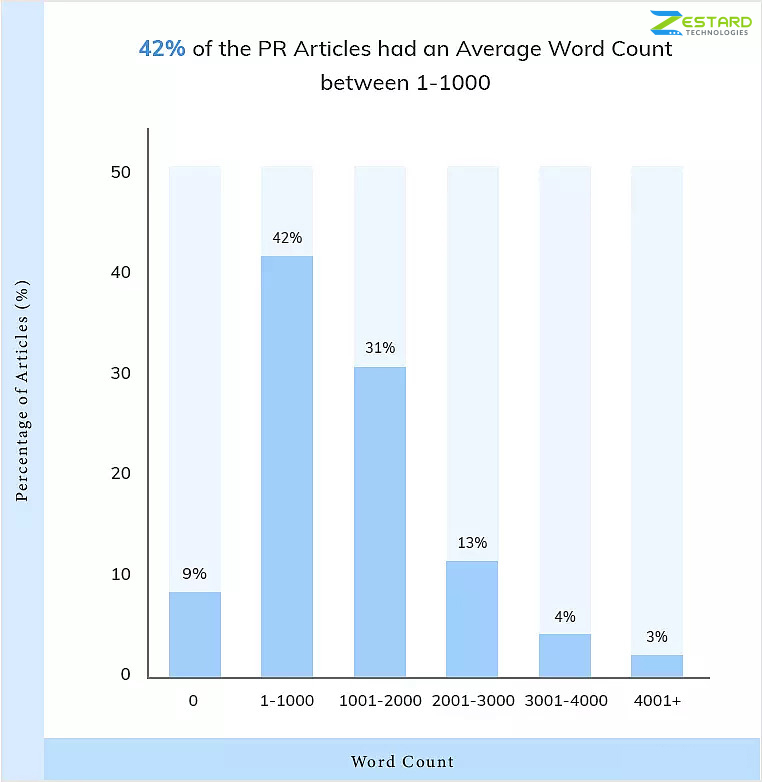
Social Media Engagement
We ran 400 digital PR articles through BuzzSumo to determine how much engagement the articles received on various social media platforms.
Nearly 59% of the articles had zero to low engagement on social media (<50). And only 8% of the digital PR articles received engagement above 1000.
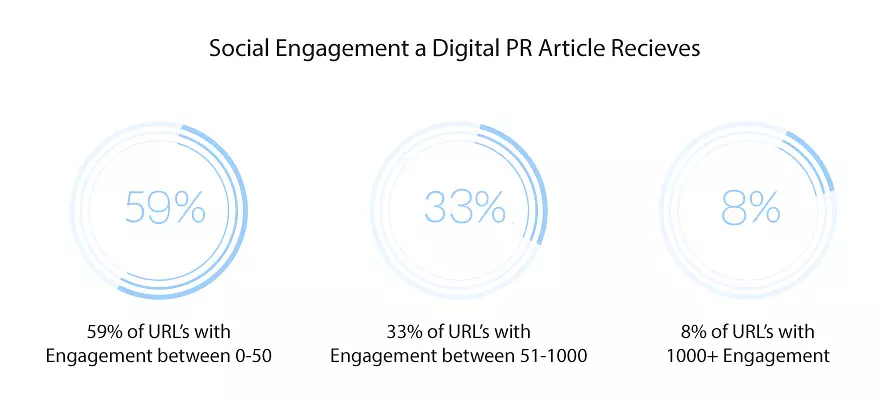
Further analysis showed that Facebook covers nearly 80% of the total social media engagement received.
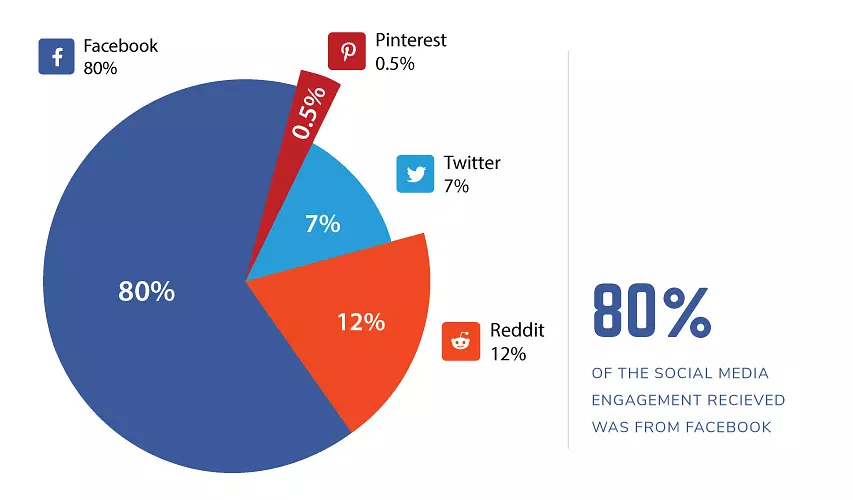
What was the Quality/Authority of the Backlinks?
We analyzed the backlinks of all the PR articles and learned that 67% of the links that the articles received were medium or low authority backlinks (i.e., DR <60), whereas 33% of the links were high authority backlinks (i.e., DR >60).
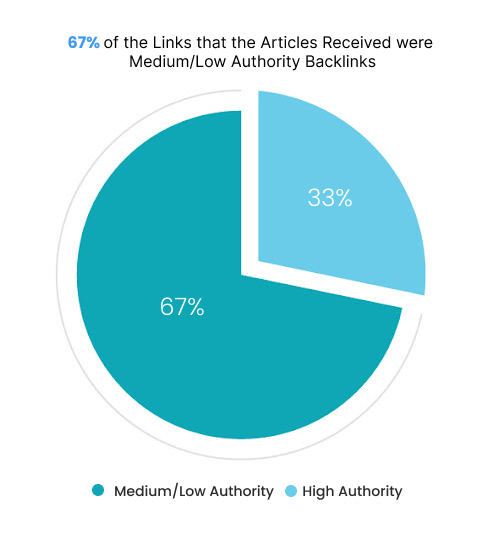
The quality of the backlinks depends on several factors, but to keep it simple, we have considered the domain rating (DR) metric of the Ahrefs tool.
Methodology
- We collected 400 digital PR articles from different sources like Google and Twitter handles that frequently feature digital PR articles (DigitalPRExamples and DigitalPRInspiration).
- A full list of the articles we’ve analyzed can be seen here. The majority of the digital PR articles we have chosen are from unique domains.
- Social media engagements were collected using BuzzSumo.
- Word count data was collected from Screaming Frog. We also manually checked and rectified the data, as we found some of them to be inaccurate.
- The rest of the data was collected from Ahrefs and manually by our team 🙂

Do you need help with Link Building?
Contact us today! We offer a variety of link building services that can help improve your website’s ranking on search engines.

